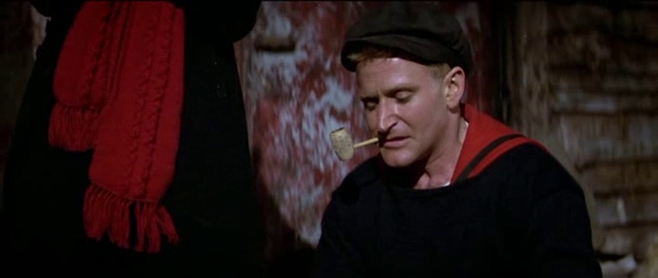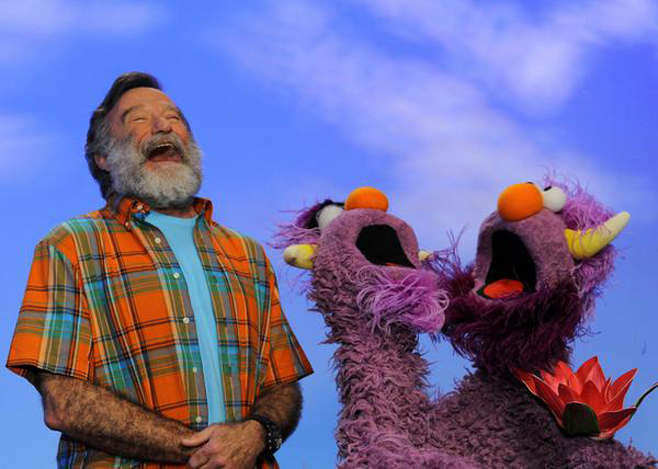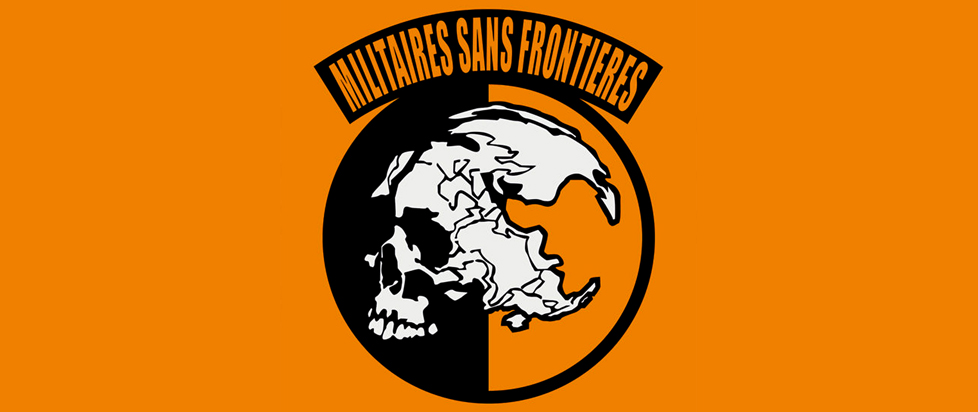
Robin Williams, 1951-2014
Robin Williams died by suicide on Monday. He was 63.
At Unwinnable, when a creative person dies, we gather together and write about how their work influenced and informed our lives. I was going to write about how unexpectedly sad the news of Williams’ death made me, and how I watched The Fisher King on Monday night, and how…well, a lot of things. The fact is, though, that Williams’ death has sparked a conversation about depression that is all too familiar. There are plenty of comments, both below and elsewhere on the internet, that eloquently address these thoughts better than I could ever hope.
Instead, I want to tell you about the thing I recently heard about Robin Williams that made me smile. Someone was paraphrasing an article (a bit of Googling leads me to believe it was this Grantland article) and their favorite takeaways. One: Robin Williams was one of the last entertainers to find fame while having the face of a mechanic. Two: he had more body hair than the current top ten male Hollywood stars combined.
The first he used to great success as an actor of surprising range. Those sad eyes, that sagely beard and that disarming grin were tools he used to touch the hearts of audiences over the entire length of my lifetime. The second…well, I just watched The Fisher King and saw all that hair up close and, well, from one hairy bastard to another, good for you Robin.
– Stu Horvath
Robin Williams was a comic genius. His manic and unpredictable stand-up performances and his memorable roles will forever be a testament to his talent. The Genie and Mrs. Doubtfire are, like many others, my personal favorites, but films like the often forgotten Bicentennial Man, the haunting One Hour Photo and his completely over the top role in The Birdcage showed the range and caliber of the acting he was capable of. What pained me most was when I learned that he was suffering so severely from depression and that in the end, the disease claimed another victim. Depression is real, it’s serious and it’s terrifying. If you suffer from depression, or know someone that does, consider that there is always support. It’s up to you to seek it out or provide it as it only takes one moment of weakness. Rest easy Robin.
– Erik Weinbrecht

As someone who suffers from depression, I completely understand the idea of being alone while surrounded by people. My first brush with Robin Williams was when he fell from space and crash landed on my TV set in the form of Mork & Mindy. My most unforgettable moment was when my brother took me to see The World According to Garp. I’ll never forget the scene when hit bit off the dog’s ear. But my favorite memory of him was in Popeye. As a fan of the cartoon, Williams embodied Popeye like no other and brought him to life in a way no one else could. Sadly, the true mark of artistic genius is always coupled with darkness. Mr. Williams, you might be gone but you will never be forgotten.
– Ken Lucas
My friend Mark has one of those multiple-stage laughs you could hear in a hurricane, a carnival barker’s guffaw that transitions into a high-pitched howl, made more prominent by the fact that the first five seconds of it are totally noiseless. I haven’t seen Mark in years, but I can still effortlessly call his laugh to mind – the man laughed easily and often, his laugh’s track playing out the same way every time.
Except once.
We’d been watching Robin Williams’ Live on Broadway in another friend’s dorm room, crowding around a tiny television and struggling to keep up with Williams’ usual barrage. Williams made a joke late in the special about Texas executioners luring disabled inmates up to the electric chair by telling them to “sit on Santa’s lap.” He then mimed the executioner pulling a lever and made a Bzzt sound.
This got all of us, but what I remember most was Mark’s three-stage laugh playing out from the floor, where Williams’ joke had driven him. I watched in amazement as the third stage – nearly always ending with a breathless wind-down – morphed into a fourth stage, a pained gasping, as though Williams had punched him straight in the gut with the force of the joke.
So yeah, that’s the time I saw Robin Williams damn near kill a person with comedy, and he didn’t even need to be in the room to do it.
– Joe DeMartino
We are all rocking and rolling with our own demons, so take the last gift Robin Williams left for everyone: this shit effects us all. Next time you see a buddy, look them in the eye and really ask how they are doing and then listen, truly listen. And the next time someone asks you, if you’re not feeling it, don’t just social grunt, talk to someone. Because taking that little bit of extra time just might mean the world just few steps down the road.
– Matt Giaquinto
This one felt like a punch in the gut. Thursday, as I picked up my friends from the airport, Robin Williams came up in conversation, and I made the comment that he just wasn’t as funny once the ’80s ended and he’d stopped doing coke. Incredibly callous of me in hindsight. Then Monday night after the news of his passing broke a friend of mine made mention of his golf bit from his Live on Broadway special, filmed in 2002, and I laughed like an 8-year-old me discovering Mork & Mindy.
– Don Becker
My memories of Robin Williams begin at a very young age. My dad had a taped copy of Live at the Met and it was one of many classic comedy performances we bonded over. Besides that, Robin was Mork from Ork and Popeye. Terry Gilliam could capture lighting in a bottle with him, and I love his performances in Baron Munchausen and especially The Fisher King, where I saw that he possessed so much more range than just a manic funnyman. He still exhibited that amazing range more recently in an episode of Louie and the dark Bobcat Goldthwait film World’s Greatest Dad, to name a couple of examples. It’s terrible that he had to bow out so early: much like Parry from The Fisher King, he was always haunted by that Red Knight, except for Williams it was the all too real internal demon that is depression. Rest in peace, Robin.
– Michael Edwards
When I was a kid, Robin Williams was always the Genie to me: a whirling bundle of exuberant energy, rarely still for more than a moment, and even when he was it felt like he was fizzing with potential, on the brink of exploding into some new and ingenious tangent.
But it wasn’t until I was a teenager, transfixed by Dead Poets Society, that I saw the other side of his acting; the soft, intimate, weathered voice with which he shared all the secrets of the universe, and all you could do was listen, entranced, until either he’d said all there was to say or his face cracked into that oh-so-familiar smile.
It was in the quiet moments that I learned the most, and when I went back to Aladdin, I found them there, too.
– Rob Haines
One day in 2002, I was hanging out at my favorite EB Games. I remember seeing one of my friend’s eyes widen as he watched a man walk in to the store. He quietly asked where the PC games section was and went straight to looking.
It was Robin Williams, who would be a regular for the next five years as I went from customer to assistant manager. I asked him that night if he was doing the Genie voice in Kingdom Hearts and he kindly told me he didn’t deal with that any more. The game nerd in me was devastated, but I was talking to Robin Williams! He signed my sketch book and something for a clerk, bought a game and left.
Another clerk would be fired for stealing the store receipt with Robin’s signature on it. This would lead to me eventually getting a job there. Over the years I saw our PC section shrink and shuffle but Robin Williams kept coming back. He was a hardcore PC game player and was fond of Operation Flashpoint. A friend of mine recounted the time he replied to an Oblivion versus Morrowind debate with “Daggerfall.”
Eventually Robin would ask for Xbox 360 games and he asked me what was great. I told him The Darkness. I explained that you could rip out the hearts of crooked cops, to which his eyes grew, he smiled and said, “Really?”
A weird and lucky relationship to have with a man who has made so many people laugh over the years. Always a cool customer, and I’ll miss him.
– Shawn Alexander Allen

Finding the words for this memorial is difficult because Robin Williams has been a part of my life for as long as I can remember. At 34, I’m now at the stage where celebrity deaths are more than just a ticker on the bottom of a news screen, but a punctured hole in my heart. It sounds melodramatic, but we allowed this person into our homes so much that he became a fixture, the crazy uncle who shows up at family parties with incredible stories about his travels, the one that your parents worry will rub off on you because his fluid lifestyle doesn’t fit with their idea of stability and success.
Robin Williams was a defining person in my life. Any English teacher will tell you that Dead Poets Society sits upon their shelf. The movie is a celebration of literary love. It so aptly defines the impetus of teaching – to impart not only wisdom, but a passion for anything you love. I watched the movie not as a form of enjoyment, but as a form of study. How could I make my students ache for literature the way I did?
John Keating provided me the guidance.
In the movie, one of Keating’s students half-asses a poem, saying “The cat/sat on/ the mat.” The student clearly didn’t try, but Williams’ Keating tells him “I don’t mind that your poem had a simple theme; sometimes the most beautiful poetry can be about simple things like a cat, or a flower, or rain. See, poetry can come from anything with the stuff of revelation in it. Just don’t let your poems be ordinary.”
This, to me, was the crux of what Robin Williams was trying to do – be anything but ordinary.
He succeeded.
Like so many other people, I’ve lost an important person today.
– Brian Bannen
Marc Maron recently reposted his interview with Robin Williams on WTF. It was from originally 2010. I remember hearing it back then and being really fascinated by how much Maron got out of the notoriously all-over-the-place Williams. I listened to it again on my lunch break and, fuck, it is heartbreaking. He was so smart and genuine and energetic. Hearing Williams and Maron talk shop about the comedy business so enthusiastically is bittersweet.
At one point in the interview, Williams mentions seeing Andy Kaufman at a health food store and that was the only time they talked where Kaufman wasn’t doing a character. And here’s Williams, always manic, always on, but here he is in this interview being shockingly forthright about everything from joke theft accusations to his alcoholism. It’s a heartbreaking, but necessary listen.
Robin Williams’ work as an actor transcends generations. From Mork, to Robert Ellison to Teddy Roosevelt and every character in between, Williams’ work as an actor will be studied long after we all pass away. His range was mind boggling. Every performance was so damn genuine – he was all those people and all those people were Robin.
– Ian Gonzales
“Just end it all.”
The first time I said that line, I was dead drunk, sprawled out on Steve’s sofa in Portland a lifetime and a half ago. I’ve uttered it countless times since when the innumerable small tragedies and insults of existence in the 21st century seem too great to overcome or even process. It’s the sort of black humor that appealed to my fatalistic sensibilities as a 24-year-old kid who had no clue what life outside the friendly confines of the Rose City held in store. After moving to Seattle three years ago, the sentiment morphed into “I’m just going to jump off the Ballard Bridge.”
I don’t spend too much time questioning my past actions, but today I’d like to take back every idle threat of suicide I’ve ever made. It doesn’t seem hip or smart or funny in the slightest. It seems sad, misguided and callous and it makes me feel a kind of shame that I’m not used to allowing into the innermost regions of my psyche.
It’s easy (and important) to talk about addiction and depression and Robin’s great movie roles. Williams embodied everyone from Popeye to English teacher John Keating and what he means to people is intense and personal. What’s harder to keep in perspective is that Robin Williams was more than just a set of demons and jokes and indelible characters. In the end, he was flawed, deeply hurt and fiercely human. Once we’ve acknowledged everything that can be done to prevent suicide, once we’ve celebrated his body of work, I hope what we truly remember is his humanity. I hope it helps us remember our own.
– Owen R. Smith
Robin Williams was easily the most distinct personality out there for me as a kid. His feverish energy was instantly recognizable, but I think what also made him endearing to children, myself included, was that it was so easy to see the tenderness that lay just under the surface of all the crazy antics. He exuded kindness and warmth in a way that made it easy to follow him through whatever outrageous situation he was performing in. He was marvelous as the Genie, and probably the only person who could ever make me – a kid who absolutely hated even getting his fingers dirty while eating dinner – want to dunk my face in a pie as he did in Mrs. Doubtfire.
When I read through my gaming magazines as a kid only to discover he named his daughter after The Legend of Zelda, that cemented his status in my young eyes enough to make even Flubber a must-watch experience.
Reading through all the memories people have posted – Norm Macdonald’s Twitter story, this great Vulture piece – it’s both unsurprising and touching to learn just how hard Williams tried at what he did, and how much he cared about what others felt. As talented as he was, he didn’t actually make things look easy. He made things look exhausting and sweaty, and kept going until you couldn’t help but laugh and feel good. I remember hearing some criticism that he tried too hard sometimes. What a wonderful complaint. It should be used against more of us.
– Jordan Mammo
My earliest memories of Robin Williams are blurry. When I was young, my parents introduced him to me, through Sesame Street or maybe a vague notion of Mork & Mindy, though the first time I actively recall being aware of the infectious, elastic energy he exuded was in Hook, when I was seven. Over the years I grew up with Robin’s films, especially his comedies. Eventually I got too old for his family-friendly fare, and remember often becoming disinterested in many of his schlockier roles – the kind you almost felt embarrassed for him for making.
Then, years later, he took his own life.
Robin’s death deeply moved me, more so even than I would have imagined. In his memorial piece, A.O. Scott observed that it was Williams’ penchant for sentimentality that made us, at times, take his status of an actor for granted. Especially in the wake of his depression, realizing the heartless truth of that statement made me feel enormous guilt.
The ineffable sense of wonder and laughter Williams embodied is hard to qualify; for me, it’s a mixture of nostalgia and innocence that makes me feel like a kid again. It’s a feeling that, in the most trying of times, is to be remembered and treasured.
I’m probably not the only one to notice, but for as few tweets as Robin had, all of them were of endless support and love, whether wishing loved ones a happy birthday, spreading word of friends’ projects or posting pictures of hanging out with pals on set. We should all welcome so much joy.
– Steve Haske





